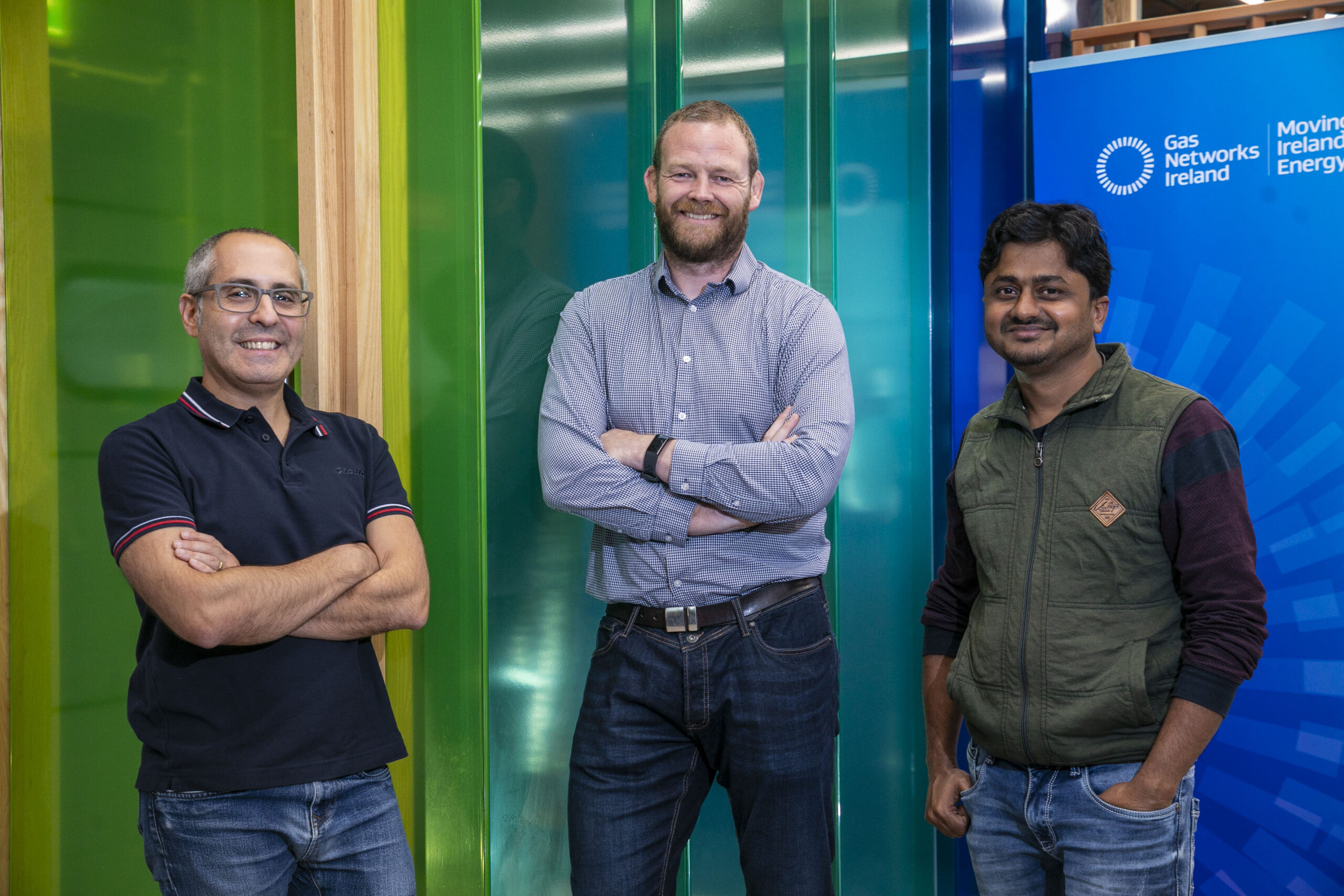Gas Networks Ireland and AMBER, the Science Foundation Ireland’s centre for Advanced Materials and BioEngineering Research, have joined forces to undertake important research to determine how compatible the materials that make up Ireland’s gas pipeline are with green hydrogen – an important first step for green hydrogen in the decarbonisation journey of Ireland’s gas network.
The research project “Material Testing and Development under Variable Hydrogen Ratios” is being carried out by scientists from AMBER – SFI’s multi–University Centre for world class Advanced Materials and BioEngineering Research, hosted at Trinity College Dublin – in conjunction with engineers from Gas Networks Ireland. With initial funding of €220,000 in the first year, the project has the potential to run for up to five years.
Speaking about the project, which aims to explore the impact of green hydrogen blended with natural gas and biomethane, as well as pure green hydrogen has on existing materials within Ireland’s gas network, AMBER Principal Investigator, Associate Professor Rocco Lupoi said:
“Hydrogen is a much smaller and lighter molecule than those that make up natural gas and biomethane. This research will investigate the compatibility of transporting these smaller hydrogen molecules through the existing pipes and infrastructure – including materials such as polymers, rubbers and metals – that make up the gas network. Identifying any components within the network that have a low compatibility with hydrogen – which may need to be replaced or adapted ensuring safety in transporting the green gas, is a key focus of the research.”
The EU is predicting that approximately 14% of energy consumption across Europe will be from hydrogen by 2050, and up to 20-35% of the total energy demand in the UK. Gas Networks Ireland is expecting that hydrogen will account for almost 3% of Ireland’s gas demand by 2032.
“With over 80% of the State’s natural gas requirements being met by gas imported from the UK, we are working to ensure that Ireland’s gas network is ready to transport hydrogen,” Gas Networks Ireland’s Head of Technical Development and Technical Training, Liam Nolan said:
“This research with AMBER is another step in our continued testing and research projects at our Network Innovation Centre, informing the continuous development of a detailed hydrogen technical and safety strategy – which is providing a road map for the transition to hydrogen, and the decarbonisation of Ireland’s gas network. Hydrogen will form part of the energy renewables mix that includes wind, solar and tidal energy as well as biomethane.”
Research on use of hydrogen by domestic and industrial users
Gas Networks Ireland has also been collaborating on research with University College Dublin Energy Institute (UCDEI). Phase one of this research focused primarily on domestic appliances, which were tested with a variety of hydrogen blends. The research found that domestic appliances such as gas cookers could take up to 20% of hydrogen blended with natural gas without the need for retrofitting, modifications or additional costs.
Phase two of the research which concluded in late 2023, involved over 300 of the largest users of networked gas in the country and found that 90% of the end users’ equipment is compatible with blends of 20% hydrogen, while the remaining 10% of Irish industry would need further assessment to determine the modifications required.
Phase three of this research, HyGreenNet will focus on the gas distribution network and investigate the operational, safety and material compatibility, and is underway with initial results expected before the end of 2024.
Gas Network Ireland is also working closely with the Hydrogen Safety Engineering and Research Centre (HySAFER) at Ulster University on a research project on the safety of hydrogen blends in the Gas Network, in collaboration with gas network operators in Northern Ireland. The project has received funding from CASE (Centre for Advanced Sustainable Energy).
Additionally, Gas Networks Ireland is one of several industry stakeholders funding a €16 million strategic partnership with Irish third-level institutions that will examine how to holistically decarbonise the overall Irish energy sector. Hosted by UCDEI, NexSys (Next Generation Energy System) is also supported by Science Foundation Ireland (SFI)

